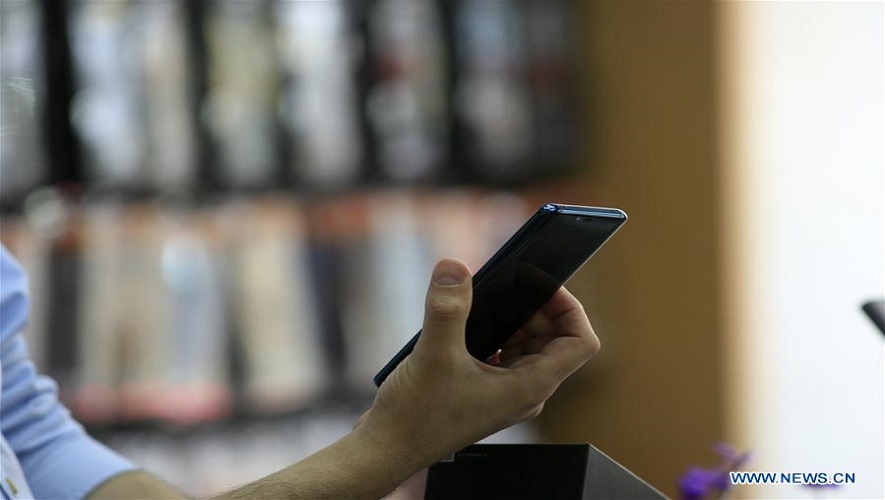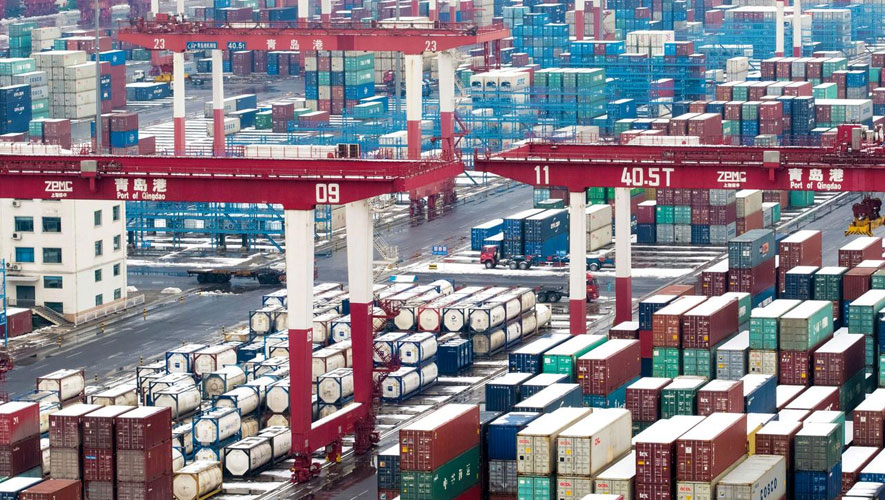I’m still struck by how fast everything has happened. Just a few weeks ago, it was as if I was living in a different world.
For the latest Cambodian Business news, visit Khmer Times Business
On Jan 20, several of my colleagues told me they were worried about news reports of a “Wuhan flu” – apparently a few people had even died. I read some articles and it sounded potentially serious, but pretty far away from Shanghai. Out of paranoia, on my last day of work before the Chinese New Year break, I wore a face mask on the metro, which I had initially bought to protect me from air pollution.
The next day, my wife and I got on a flight to Jilin City in the north of China – travelling back to spend Chinese New Year with her family. Maybe 70-80 percent of people on the flight were wearing masks, but few airport employees were. To avoid taking my mask off, I didn’t eat my plane meal – no great loss.
A couple of days after arriving in Jilin, I went to meet some friends, who were quite relaxed about the whole thing. But it was around this time that Chinese state media started reporting extensively about the virus and an increased sense of fear set in during the following days: I didn’t see anyone else but my wife’s parents for the rest of my time in Jilin. As new reports came out, post-holiday work plans had to be revised again and again, until the Shanghai authorities made it clear they did not want anyone starting back before Feb 10.
We returned to Shanghai on Jan 29. By then airports had been transformed, with multiple rounds of temperature checks and not one person, traveller or staff, without a mask. On arriving home, we found a note on our apartment door, asking us to contact the local neighbourhood committee. They asked us for our personal details and flight information, and advised us to spend at least 14 days indoors and let them know if we had any need to go out. This was not a problem – we were not planning on going anywhere.
In just nine days, the country and everyone I knew had moved from mild concern that this virus could be potentially a tad worrying, to a new normal where even going outside for a walk seemed cavalier and selfish. Over these days, we fell into a similar rut to many; waking up, checking the news, shaking our heads grimly, and then trying to get on with the day.
This has been sometimes stressful. Last night my wife had a nightmare in which she was out on the street, surrounded by people wearing face masks, while she wasn’t wearing one herself. In all seriousness though, we can’t complain because we have been incredibly lucky:
First, and most importantly, the company I work for are supporting working from home. My wife’s company are requiring her to either brave a long metro commute or take unpaid leave while keeping up with emails – she chose the latter. The upshot is that we can stay in our apartment until things become safe, which is a relief.
Second, we’re living in the best time in history to be cooped up indoors. We have high-speed internet, computers and consoles, and endless games, books, music and films to enjoy. I have my guitar and my wife has her sewing machine. We can entertain ourselves indefinitely, and are helped by the fact our relationship has always been based on giving each other lots of space to do our own thing: perhaps I’ll finish reading Paradise Lost after all. Unlike others trapped inside, we aren’t alone, we have each other and Skype and WeChat calls to friends and family.
Third, Shanghai has always been kind to those who don’t want to venture out. We can order all our groceries and essentials online and the only time we need to leave the apartment is to pick up our orders or take out the rubbish. I’m thinking of ordering a more comfortable chair.
And yet, despite our good fortune, as foreign media coverage of the virus has got increasingly hysterical, I’ve been asked why I don’t go back to the UK – particularly after the UK government advised nationals to leave the country. I understand the concern and I often reflect on the speed of the outbreak, going from just a few deaths on Jan 20 to more than 1,000 as of Feb 12. Humans are not good at understanding exponential growth, but it does beg the question – what will happen in another month?
Of course, I don’t know. But I see two likely outcomes, neither which suggests a strong argument to flee the country:
The first is that China successfully contains the virus, with the brunt of the hardship being born by Hubei province and, in a month or so, the rest of the country goes back to normal. In that case, the huge hassle of uprooting our lives and careers, going through endless British visa bureaucracy (much harder for Chinese than many people realise) and then finding a place in the UK to self-isolate for 14 days, seems a bit of a waste of time.
The second scenario is that China cannot contain the virus – perhaps the fact it can spread so quickly while people show no symptoms proves too much to deal with. If this happens, it won’t matter what country we are in because no one will be able to stop it spreading around the world.
The Chinese government is doing everything possible – locking down cities of millions, tracking every traveller and making huge economic sacrifices to keep people off the streets and out of public places. And these are just the bigger picture measures – there are 1,000 smaller steps being taken too. Even the lift in my building has now got a box of tissue glued to the wall, allowing residents to press the lift buttons without any skin contact. Anyone returning from outside the city is being asked to self-isolate for 14 days and some offices are enforcing this strictly.
I do not see what more China, or any country, could realistically do and this month, as everyone comes back to work, we will see if it is enough. So, what’s the plan? Well, we’re planning to stay in China, stay home, stay safe and wait and see what happens.
Daniel Skeens is from the UK, and is an associate director at Pacific Strategies and Assessments (PSA), a risk consultancy




